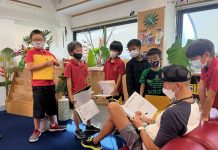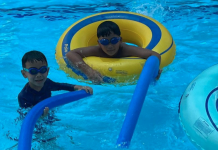Dear Parents,
Shanghai American School is pleased to announce a parent presentation about mathematics instruction in the 21st century. Shanghai American School has recently embarked on a curriculum review of mathematics at the elementary and middle school levels. Teachers have worked this school year to align mathematic units of study to the newly adopted Common Core State Standards. Please join us for a presentation and conversation about why mathematical instruction has changed for our student learners in order to increase their depth of knowledge around mathematical content.
Title: Why Mathematical Instruction has Changed
Who should attend: Elementary and Middle School Parents
Date: Tuesday, May 7, 2013
Location and Times:
Pudong Campus
Library Lecture Hall
10:00 – 11:00
Erma Anderson Biography
Erma Anderson is a former high school physics and mathematics teacher and Albert Einstein Distinguished Fellow in the United States Senate. She was a Senior Program Officer with the National Research Council assisting in the development of the National Science Education Standards. She was a Christa McAuliffe Fellow with the National Foundation for the Improvement of Education. She has worked with the National Science Teachers Association on several projects including, the Mentoring Initiative e-Mentoring for Student Success (eMSS), development of sciLINKS (www.sciLINKS.org) and Project Manager of Scope, Sequence and Coordination of Secondary School Science, a science curriculum reform project of NSTA. Recently she served as a consultant with the NSTA on the development of assessment anchors and sciPacks, digital objects for enhancing understanding of important science topics. Currently, she is a science and mathematics curriculum and assessment consultant to Modern Red Schoolhouse Institute, a Comprehensive School Reform Model and a consultant with Achieve, reviewing state standards and benchmarks. She served as a consultant and advisor to the Council for Basic Education’s Schools Around the World (www.s-a-w.org ) project, developing and implementing the Evidence to Excellence protocol and a series of professional development activities that use student work from nine participating countries to enhance the teaching and learning of science. She has worked with the Council in the writing of state and district curriculum frameworks, benchmarking state standards to NAEP and Japanese Standards, and designing a tool for reviewing state science frameworks. She worked with Education Trust to review the alignment of state exit standards to college entrance exams and in the evaluation of teacher education exams (Report entitled Not Good Enough). She has considerable experience developing and facilitating workshops with formal and informal science education entities such as Educational Field Studies; National Institute of Medicine; United States Forestry Service; National Park Service, Kidsnet, school districts, states, regional conferences for A/OS, and the 2010 APEC Education Summit. She has a MST degree from the College of William and Mary and a BS from Shippensburg University. Currently, she is an independent educational consultant in science and mathematics.




